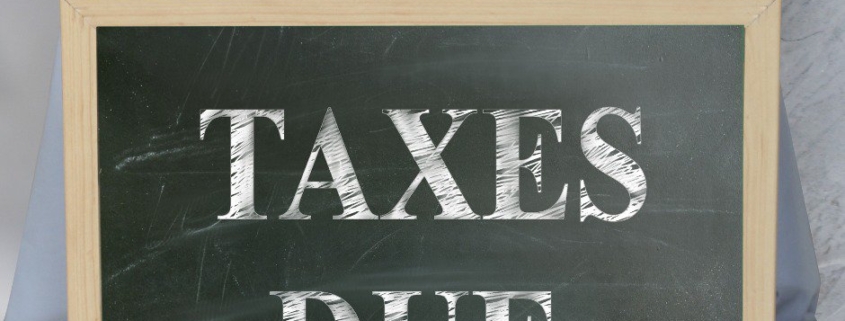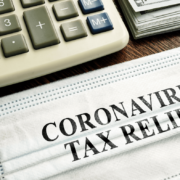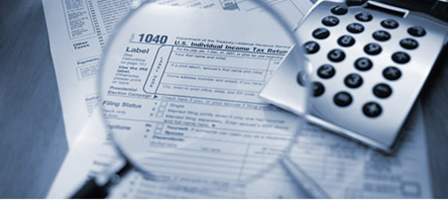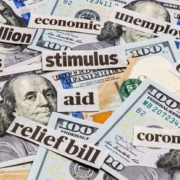Mark Your Calendar! April 2021 Individual and Business Tax Due Dates
- Discover the new extended deadline to file your taxes.
- Find out which taxes you need to pay as an individual in April 2021.
- Find out if the extended filing date applies to your estimated tax payment due date.
- Learn how to avoid paying penalties for underpayment of your estimated taxes.
- Discover the due date for household employer returns.
- When should C-Corporations file an income tax return and pay taxes due?
- Discover the last day to make IRA contributions for 2020.
April is a big month for tax due dates! Even though the new deadline to file has been extended to May 17th, there are still some taxes due in April. Take a look at Fiducial’s list of tax due dates coming up this month, then call your Fiducial representative with any questions.
April 2021 Individual Tax Due Dates
April 12 – Report Tips to Employer
If you are an employee who works for tips and received more than $20 in tips during March, you must report them to your employer on IRS Form 4070 no later than April 12.
April 15 – Taxpayers with Foreign Financial Interests
A U.S. citizen or resident, or a person doing business in the United States, who has a financial interest in or signature or other authority over any foreign financial accounts (bank, securities, or other types of financial accounts), in a foreign country, must file Form FinCEN 114. You must file this form electronically; paper forms are not allowed. You must file the form with the Treasury Department (not the IRS) no later than April 15, 2021, for 2020. A filing extension of up to 6 months is automatically allowed. This filing requirement applies only if the aggregate value of these financial accounts exceeds $10,000 at any time during 2020. Contact your Fiducial representative for additional information and assistance filing the form.
April 15 – The Normal April 15 Filing Due Date extended to May 17, 2021
The IRS has extended the normal April 15 individual tax return due date to May 17. Caution: the extension does not apply to the 2021 estimated tax payment which is still due on April 15, 2021.
April 15 – Estimated Tax Payment Due Date (Individuals)
It’s time to make your first quarter estimated tax installment payment for the 2021 tax year. Our tax system is a “pay-as-you-earn” system. To facilitate that concept, the government has provided several means of assisting taxpayers in meeting the “pay-as-you-earn” requirement. These include:
- Payroll withholding for employees;
- Pension withholding for retirees; and
- Estimated tax payments for self-employed individuals and those with other sources of income not covered by withholding.
When a taxpayer fails to prepay a safe harbor (minimum) amount, they can be subject to the underpayment penalty. This penalty equals the federal short-term rate plus 3 percentage points, and the IRS computes the penalty on a quarter-by-quarter basis.
Federal tax law does provide ways to avoid the underpayment penalty. If the underpayment is less than $1,000 (the “de minimis amount”), no penalty is assessed. In addition, the law provides "safe harbor" prepayments. There are two safe harbors:
- The first safe harbor is based on the tax owed in the current year. If your payments equal or exceed 90% of what you owe in the current year, you can escape a penalty.
- The second safe harbor is based on the tax owed in the immediately preceding tax year. This safe harbor is generally 100% of the prior year’s tax liability. However, for taxpayers whose AGI exceeds $150,000 ($75,000 for married taxpayers filing separately), the prior year’s safe harbor is 110%.
Example:
Suppose your tax for the year is $10,000 and your prepayments total $5,600. The result is that you owe an additional $4,400 on your tax return. To find out if you owe a penalty, see if you meet the first safe harbor exception. Since 90% of $10,000 is $9,000, your prepayments fell short of the mark. You can't avoid the penalty under this exception.
However, in the above example, the safe harbor may still apply. Assume your prior year’s tax was $5,000. Since you prepaid $5,600, which is greater than 110% of the prior year’s tax (110% = $5,500), you qualify for this safe harbor and can escape the penalty.
This example underscores the importance of making sure your prepayments are adequate, especially if you have a large increase in income. This is common when there is a large gain from the sale of stocks, sale of property, when large bonuses are paid, when a taxpayer retires, etc. Timely payment of each required estimated tax installment is also a requirement to meet the safe harbor exception to the penalty. If you have questions regarding your safe harbor estimates, please call your Fiducial representative as soon as possible.
CAUTION: Some state de minimis amounts and safe harbor estimate rules are different than those for the Federal estimates. Please call your Fiducial representative for particular state safe harbor rules.

April 2021 Business Due Dates
April 15 – Household Employer Return Due
If you paid cash wages of $2,200 or more in 2020 to a household employee, you must file Schedule H. If you are required to file a federal income tax return (Form 1040 or 1040-SR), file Schedule H with the return and report any household employment taxes. Report any federal unemployment (FUTA) tax on Schedule H if you paid total cash wages of $1,000 or more in any calendar quarter of 2019 or 2020 to household employees. Also, report any income tax that was withheld for your household employees.
April 15 – Social Security, Medicare and Withheld Income Tax Due Date
If the monthly deposit rule applies, deposit the tax for payments in March.
April 15 – Non-Payroll Withholding
If the monthly deposit rule applies, deposit the tax for payments in March.
April 15 – C-Corporations
File a 2020 calendar year income tax return (Form 1120) and pay any tax due. If you need an automatic 6-month extension of time to file the return, file Form 7004, Application for Automatic Extension of Time to File Certain Business Income Tax, Information and Other Returns, and deposit what you estimate you owe. Filing this extension protects you from late filing penalties but not late payment penalties, so it is important that you estimate your liability and deposit it using the instructions on Form 7004.
April 15 – C-Corporations
The first installment of 2021 estimated tax of a calendar year corporation is due.
April 15 – Fiduciary Returns
Last day to timely file a 2020 calendar year fiduciary return (Form 1041, U.S. Income Tax Return of Estates and Trusts) or file an extension.
April 15 – Last Day to Make IRA Contributions
Last day to make contributions to Traditional and Roth IRAs for tax year 2020.
April 30 – Social Security, Medicare and Withheld Income Tax
File Form 941 for the first quarter of 2021. Deposit or pay any undeposited tax under the accuracy of deposit rules. If your tax liability is less than $2,500, you can pay it in full with a timely filed return. If you deposited the tax for the quarter in full and on time, you have until May 10 to file the return.
April 30 – Federal Unemployment Tax
Deposit the tax owed through March if it is more than $500.
Have questions about any of the tax due dates listed above? Call Fiducial at 1-866-FIDUCIAL or make an appointment at one of our office locations to discuss your situation.
Ready to book an appointment now? Click here. Know someone who might need our services? We love referrals!
For more small business COVID-19 resources, visit Fiducial’s Coronavirus Update Center to find information on SBA loans, tax updates, the Paycheck Protection Program, paid sick and family leave, and more.









